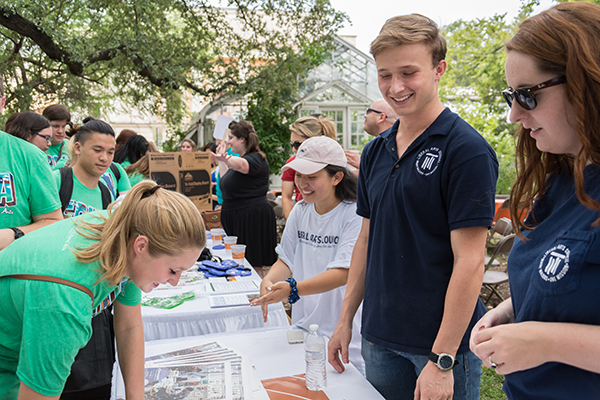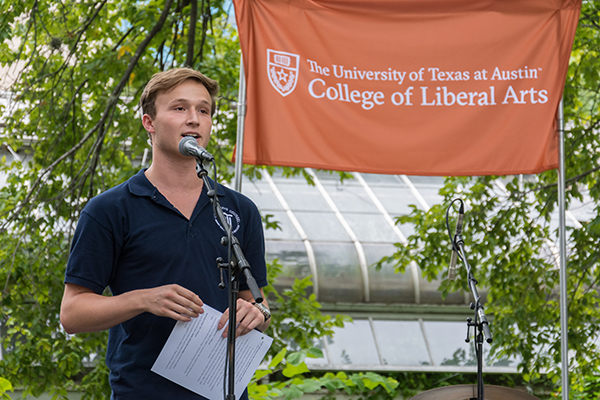Initially denied an interview to join Liberal Arts Council his first semester on campus, Austin Reynolds received an interview slot through a last-minute cancellation and earned his spot in the organization with an impressive question and answer session. Two years later, the English honors junior from Texarkana, Texas, became the organization’s 2015-16 president.
The following Q&A expands on more about Reynolds, this year’s plans for Liberal Arts Council and why students should get involved.
Applications for Liberal Arts Council can be found on the group’s Hornslink page and are due Sept. 5 at noon.
Why should students get involved with Liberal Arts Council?
LAC functions to help students. This mantra does not exclude the membership as well. The people I have met, the advice I have received and the opportunities that have presented themselves to me thanks to LAC have made my time on this campus invaluable.
What motivated you to run for president?
This organization is where I have found my friends and confidants. As a result, I have become very fond of LAC. I believe I was a good presidential candidate for LAC because I am passionate for the organization and dedicated to the friends I have made within the council.

What are the plans for the LAC this year?
LAC is implementing class representatives, who will be elected by the student body. The representatives will be the voice for each student class within the college (Freshman, Sophomore, etc.). We are also bringing back the free New York Times subscription for all liberal arts students.
What are your goals as president?
I plan to take a gigantic step forward from where we are. I want the organization to grow from the wonderful foundation that was passed to this year’s members. In order to accomplish this goal, LAC must remain dedicated and reliable to not only the college administration, but also to the constituents of the College of Liberal Arts.
What are you most proud of from your time at UT Austin so far?
I’m proud of the personal relationships I have struck with professors. The power of a simple conversation is evident within the academic community. By maintaining contact and reaching out with some of my professors, I have been able to continually foster a strong relationship with people I now consider mentors and friends.
What are your professional ambitions after graduation?
I’m pursing a law degree focusing on business and estate law. I’m also looking into civil litigation as an alternative option. However, pursing the career of a bar pianist will always be in the back of my mind.
What has studying liberal arts meant to you?
A liberal arts education helps you to gain a comprehensive view of the world by applying knowledge gained through interdisciplinary studies. A liberal arts degree focuses on dissecting and seeing past surface-level comprehension. This skill ultimately leads one to a deeper realm of understanding. Studying liberal arts has helped me utilize this comprehension tool and further understand the diversity and complexity of the human nature.
Keep up with Liberal Arts Council on Facebook, Twitter and their website.
